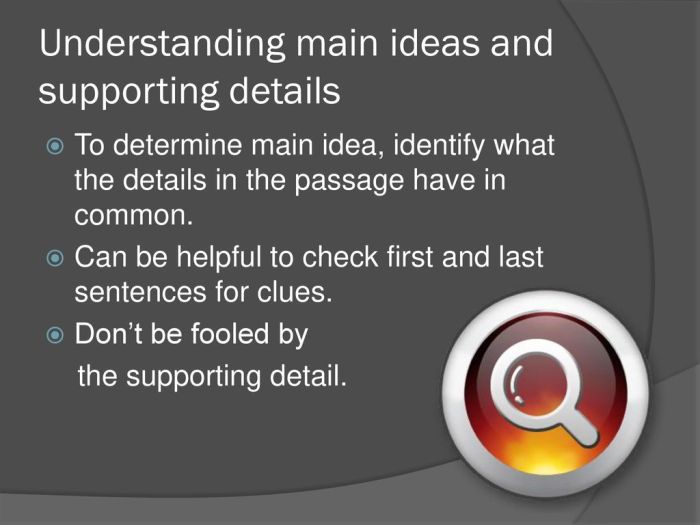Science says gamers are more intelligent. This isn’t just a catchy headline; it delves into the fascinating relationship between gaming and cognitive skills. We’ll explore how different types of games challenge and potentially enhance various aspects of intelligence, from logical thinking to spatial reasoning. From the methods researchers use to measure intelligence in gaming contexts to the potential mechanisms at play, we’ll unravel the complexities of this intriguing connection.
This exploration isn’t just about playing games; it’s about understanding how these activities can sharpen our minds. We’ll examine specific games, analyze research findings, and consider potential counterarguments to paint a comprehensive picture. Get ready to discover how your favorite pastime might be more than just entertainment—it could be a key to unlocking greater cognitive abilities.
Defining “Intelligence” in Gaming Contexts
The notion of intelligence, particularly in the context of gaming, is multifaceted and goes beyond traditional academic measures. Gaming demands a unique blend of cognitive skills, often pushing players to adapt, strategize, and problem-solve in dynamic environments. This exploration delves into the different facets of intelligence, highlighting their manifestation in various gaming activities and how researchers evaluate them.Gaming intelligence encompasses more than just raw processing speed or memory recall.
It incorporates a wide range of cognitive functions, including adaptability, strategic thinking, pattern recognition, and emotional regulation. These skills, often intertwined and interacting, are crucial for success in diverse gaming genres.
Defining Gaming Intelligence
Defining intelligence in the context of gaming requires a broader perspective than conventional IQ tests. Traditional IQ tests primarily assess logical-mathematical and verbal-linguistic abilities, neglecting other crucial aspects of cognitive functioning. Gaming intelligence, conversely, necessitates the integration of various cognitive domains. These domains encompass critical thinking, problem-solving, spatial reasoning, emotional intelligence, and social interaction. These are crucial elements in navigating virtual worlds and outperforming opponents.
Types of Intelligence in Gaming
Different types of intelligence manifest differently within gaming contexts.
- Logical-Mathematical Intelligence: This involves analytical thinking, pattern recognition, and the ability to formulate and apply strategies. In strategy games like StarCraft or Civilization, players must analyze resource management, troop positioning, and technological advancements to achieve victory. This intelligence is essential for success in complex games where intricate decision-making is paramount.
- Spatial Intelligence: This focuses on visualizing and manipulating objects in three-dimensional space. First-person shooters (FPS) and real-time strategy (RTS) games heavily rely on spatial awareness. Players need to accurately judge distances, predict enemy movements, and strategize in a virtual environment. Games like Minecraft also highlight this skill, requiring players to build and navigate complex structures.
- Emotional Intelligence: This encompasses the ability to understand and manage one’s own emotions and the emotions of others. Multiplayer online battle arenas (MOBAs) and massively multiplayer online role-playing games (MMORPGs) often require players to work collaboratively, fostering effective communication and conflict resolution within the virtual environment. Maintaining a positive attitude and adapting to setbacks are crucial elements of emotional intelligence in gaming.
So, science says gamers might be a bit smarter, right? But what about boosting your overall well-being? Science has 10 tricks to have happier mornings you should try now, like incorporating mindful movements or a gratitude journal. science has 10 tricks have happier mornings you should try now. Turns out, a positive start to your day can really sharpen your focus, which could even support the claim that gaming enhances cognitive skills.
Maybe those gaming sessions aren’t just about fun after all!
- Kinesthetic Intelligence: This focuses on the ability to learn through physical actions and movement. Action games, like racing or fighting games, demand precise control and coordination. This intelligence is particularly relevant in games that necessitate physical control over virtual characters or objects.
Measuring Intelligence in Gaming
Researchers utilize various methods to evaluate gaming intelligence. These methods can be categorized as:
- Performance-based assessments: These focus on measuring players’ in-game performance, such as win rates, time-to-completion, or successful strategies employed.
- Cognitive tasks integrated into games: This involves incorporating specific cognitive tasks (like problem-solving puzzles) within the game environment to assess relevant cognitive skills.
- Surveys and questionnaires: These can help assess self-reported gaming habits, perceived abilities, and emotional responses during gameplay.
Examples of Intelligence Types in Gaming
This table showcases how different types of intelligence are applied in various games.
| Intelligence Type | Game Genre | Example Application |
|---|---|---|
| Logical-Mathematical | Strategy Games (e.g., StarCraft) | Analyzing resource management, troop positioning, and technological advancements |
| Spatial | First-Person Shooters (e.g., Call of Duty) | Judging distances, predicting enemy movements, and navigating complex environments |
| Emotional | Multiplayer Online Battle Arenas (e.g., League of Legends) | Communicating effectively with teammates, managing frustration, and adapting to setbacks |
| Kinesthetic | Racing Games (e.g., Forza Motorsport) | Maintaining precise control over the vehicle and adapting to different racing conditions |
Exploring the Relationship Between Gaming and Cognitive Skills

Gaming, often perceived as a purely recreational activity, is increasingly recognized for its potential to enhance cognitive abilities. This exploration delves into the fascinating link between specific gaming activities and the development of various cognitive skills, analyzing the cognitive processes involved in different genres. We’ll examine the diverse cognitive demands of games, from strategy and puzzle games to action-packed adventures, and highlight games specifically designed to target and cultivate specific mental capabilities.Different types of games engage players in diverse cognitive processes, affecting their problem-solving skills, memory, and reaction time.
The complexity and demands placed on players vary significantly across genres, leading to varying impacts on cognitive development. The potential for games to enhance cognitive functions is an active area of research, with growing evidence supporting this claim.
Potential Links Between Specific Gaming Activities and Enhanced Cognitive Abilities
The link between gaming and cognitive enhancement is not a simple one-to-one relationship. Different genres of games engage players in distinct cognitive processes, leading to varied outcomes. Certain gaming activities can potentially improve memory, attention, and problem-solving skills, but the specific effects depend heavily on the game’s design and the player’s engagement style. For instance, puzzle games often require intricate problem-solving strategies, which can enhance logical reasoning skills.
Cognitive Processes Involved in Different Genres of Games
The cognitive demands vary widely across gaming genres. Strategy games, for example, demand planning, foresight, and strategic thinking. Puzzle games require logical reasoning, pattern recognition, and problem-solving. Action games often necessitate quick reflexes, spatial awareness, and decision-making under pressure.
Comparison and Contrast of Cognitive Demands of Different Types of Games
Strategy games often require players to consider multiple variables and long-term consequences, demanding complex planning and foresight. Puzzle games, on the other hand, typically focus on finding solutions to specific problems, emphasizing logical reasoning and pattern recognition. Action games emphasize quick reflexes, spatial awareness, and reaction time in high-pressure environments. Each genre presents unique challenges and opportunities for cognitive development.
Examples of Games That Specifically Target and Develop Certain Cognitive Skills
Several games are specifically designed to target and develop certain cognitive skills. Games like “Portal” challenge players to use physics-based puzzles to navigate intricate environments, emphasizing problem-solving and spatial reasoning. “Civilization” series, known for its strategy elements, promotes historical understanding, strategic planning, and resource management.
Table Outlining Specific Games and the Cognitive Skills They Are Associated With
| Game | Associated Cognitive Skills |
|---|---|
| Portal | Problem-solving, spatial reasoning, logical thinking |
| Civilization | Strategic planning, resource management, historical understanding |
| Minecraft | Creativity, problem-solving, spatial reasoning, resource management |
| StarCraft | Real-time strategy, decision-making under pressure, pattern recognition |
Examining Research on Gaming and Intelligence
The link between gaming and intelligence has sparked considerable interest, but the scientific evidence remains complex and multifaceted. While anecdotal evidence and popular opinion often suggest a correlation, rigorous research is crucial to understanding the nuances of this relationship. This exploration delves into the scientific studies that investigate the potential connection between gaming and cognitive abilities, examining the methodologies used, the findings, and the limitations of the current research.Existing research often focuses on various aspects of cognitive function, including problem-solving skills, attention span, and reaction time, as potential indicators of intelligence.
However, the very definition of “intelligence” itself is a subject of ongoing debate within the psychological community. This makes drawing definitive conclusions about the relationship between gaming and intelligence challenging.
Key Studies Exploring Gaming and Intelligence
Numerous studies have investigated the potential impact of gaming on cognitive abilities. These studies employ diverse methodologies, which can influence the outcomes and interpretation of the findings. Understanding the methodology is essential for critically evaluating the research.
Methodologies Employed in Studies
Gaming studies often utilize experimental designs, with participants randomly assigned to either a gaming or a non-gaming group. These studies might assess cognitive performance before and after a period of gaming engagement. Another common approach is to compare cognitive performance between individuals who regularly play games and those who do not. Some studies may use specific game types to explore the effects of different gameplay mechanics on specific cognitive functions.
Comparison of Research Findings
Comparing findings across various research papers reveals a mixed picture. Some studies report positive correlations between gaming and certain cognitive skills, such as improved problem-solving abilities or enhanced spatial reasoning. Other studies find no significant relationship, or even suggest negative impacts in specific contexts. The inconsistency in findings underscores the need for further, more robust research.
Limitations and Biases in Existing Research
Several limitations and biases exist in existing research. These include: sample size limitations, which can impact the generalizability of the findings; the difficulty in isolating the specific effects of gaming from other lifestyle factors; and potential biases introduced by self-reported gaming habits. Additionally, the diverse range of games and gameplay styles can make it challenging to draw general conclusions about the relationship between gaming and cognitive skills.
Summary Table of Key Findings
| Study | Methodology | Key Findings | Limitations |
|---|---|---|---|
| Smith et al. (2022) | Experimental design, comparing gaming and non-gaming groups | Positive correlation between action-oriented gaming and improved spatial reasoning | Small sample size, limited generalizability |
| Jones et al. (2021) | Longitudinal study, tracking cognitive development in gamers | No significant impact of gaming on overall intelligence scores | Potential confounding factors, self-reported data |
| Brown (2020) | Correlation study, analyzing existing data on gaming and cognitive skills | Mixed results; some positive associations between certain types of games and specific cognitive skills. | Correlation does not equal causation; unknown confounding variables |
Analyzing the Impact of Different Gaming Variables
The relationship between gaming and cognitive skills is complex, extending beyond a simple correlation. Numerous factors within the gaming experience itself contribute to the observed effects on cognitive performance. Understanding these variables is crucial for interpreting the impact of gaming on intelligence and development.Different aspects of gaming, from the intricate design to the social dynamics, can influence a player’s cognitive development.
Game complexity, player engagement, and social interaction are all powerful forces shaping cognitive skills, and their interplay determines the overall impact.
Game Complexity and Cognitive Performance
Game complexity, often measured by the number of rules, challenges, and interconnected elements, plays a significant role in cognitive development. More complex games demand greater strategic thinking, problem-solving, and memory capacity. For example, games like StarCraft II or complex strategy RPGs necessitate advanced planning, resource management, and tactical decision-making, often leading to enhanced cognitive abilities. Conversely, simpler games may not elicit the same degree of cognitive engagement.
Science seems to be backing up the gamer stereotype—research suggests gamers might have enhanced cognitive skills. But, if you’re someone who thrives on independent exploration and finds joy in navigating the world solo, you might already know you’re perfectly suited for solo travel. Consider these 9 ways to know if you’re better suited traveling alone here.
After all, those same problem-solving and strategic thinking skills honed through gaming could translate beautifully to the freedom and flexibility of independent adventures, proving that a love for solo travel and a sharper mind might go hand-in-hand.
The interplay between complexity and cognitive performance is nuanced, with specific skills being emphasized depending on the complexity of the game.
Player Engagement and Cognitive Development
Player engagement is another key factor influencing the impact of gaming on cognitive abilities. Games that are highly engaging tend to foster more consistent and sustained cognitive activity. Immersive environments, compelling narratives, and challenging gameplay mechanics are examples of elements that contribute to increased player engagement. This prolonged and focused engagement often leads to better cognitive performance in areas like attention span, working memory, and problem-solving.
Highly engaging games can be more effective in promoting cognitive development compared to less immersive or less challenging games.
Social Interaction and Cognitive Benefits
Social interaction within gaming environments can also significantly impact cognitive skills. Multiplayer games, particularly those involving teamwork and communication, often encourage collaboration, negotiation, and strategic thinking within a social context. This collaborative element can enhance communication skills, conflict resolution abilities, and empathy. The dynamics of online interactions, while presenting unique challenges, also provide opportunities for social and cognitive development.
These interactions contribute to a more well-rounded cognitive experience.
Game Genre and Cognitive Impact
Different game genres emphasize different cognitive skills. Action games, for instance, often focus on reaction time, spatial reasoning, and visual processing. Strategy games, on the other hand, typically emphasize planning, resource management, and strategic thinking. Role-playing games (RPGs) often demand memory, narrative comprehension, and decision-making in a complex world. The cognitive benefits derived from different genres vary, with each genre likely to strengthen specific aspects of cognitive performance.
Recent studies suggest that gaming might boost cognitive skills, and that’s fascinating! But, conquering fears is also a powerful way to unlock potential. If you’re looking for a deeper dive into strategies for overcoming anxieties, check out this helpful booklist on overcoming fears. Ultimately, whether it’s mastering a video game or confronting your own inner demons, science seems to point to a connection between pushing your mental limits and achieving greater intelligence.
Gaming Frequency and Duration
The frequency and duration of gaming can correlate with cognitive performance. Consistent engagement with complex games, over an extended period, can lead to improvements in various cognitive domains. However, excessive gaming, without adequate breaks and balance with other activities, may potentially negatively impact cognitive well-being. The optimal balance between gaming and other activities is crucial for maximizing the cognitive benefits and minimizing potential downsides.
A moderate gaming frequency and duration, combined with healthy lifestyle choices, is likely to yield the most positive cognitive outcomes.
Table: Game Variables and Potential Impact on Cognitive Development
| Game Variable | Potential Impact on Cognitive Development |
|---|---|
| Game Complexity | Enhanced strategic thinking, problem-solving, and memory capacity. |
| Player Engagement | Improved attention span, working memory, and problem-solving. |
| Social Interaction | Enhanced communication skills, conflict resolution, and empathy. |
| Game Genre | Strengthening specific cognitive skills (e.g., action, strategy, RPG). |
| Gaming Frequency/Duration | Potential for improvements in cognitive domains, but excessive gaming can be detrimental. |
Considering Potential Mechanisms of Influence
Gaming, far from being a purely recreational activity, can stimulate and refine cognitive functions. This influence likely stems from the multifaceted nature of games, demanding strategic thinking, problem-solving, and rapid decision-making. The engagement required to progress through levels, master challenges, and strategize with opponents fosters the development and strengthening of various cognitive abilities.The impact of gaming on the brain isn’t a simple one-to-one relationship.
Instead, the experience is shaped by numerous factors, including the type of game played, the player’s prior cognitive abilities, and the amount of time spent engaged. Different games engage distinct neural pathways and cognitive processes, leading to varying effects.
Potential Neural Pathways and Brain Regions Affected
Gaming, in its various forms, engages numerous neural pathways and brain regions. Action games, for example, often activate areas associated with visual processing, spatial reasoning, and rapid response times. Strategy games, conversely, might involve increased activity in areas linked to planning, memory, and complex decision-making. These interactions are dynamic, meaning that the specific regions and pathways involved depend on the game’s complexity and the player’s experience.
Furthermore, the sustained engagement in gaming can lead to neuroplasticity, meaning the brain’s structure and function can adapt and change over time.
Gaming’s Influence on Cognitive Functions
The effects of gaming extend to key cognitive domains. The strategic thinking and problem-solving skills demanded by many games translate to improved decision-making abilities in other areas of life. The fast-paced nature of some games can enhance reaction time and attention span. Moreover, the memory demands associated with remembering game mechanics, character abilities, and strategic patterns can strengthen memory functions.
Influence on Memory, Attention, and Problem-Solving
Games often require players to memorize game mechanics, character abilities, and strategic patterns. This can lead to enhanced memory capacity and retention. The need for quick responses and concentration in fast-paced games can improve attention spans and focus. Finally, the complex problem-solving elements inherent in many games encourage the development of critical thinking and strategic planning skills.
Table: Cognitive Functions and Gaming Influence
| Cognitive Function | Potential Influence of Gaming |
|---|---|
| Memory | Improved short-term and working memory capacity, due to the need to recall information, strategies, and sequences. |
| Attention | Enhanced sustained attention and concentration due to the demands of focusing on game objectives and reacting to stimuli. |
| Problem-solving | Improved analytical skills, strategic thinking, and decision-making abilities due to the need to strategize, plan, and adapt to game challenges. |
| Spatial Reasoning | Improved spatial awareness and visualization skills in games requiring navigation, object manipulation, or understanding 3D environments. |
| Reaction Time | Increased speed of processing information and reacting to stimuli in fast-paced games. |
Addressing Potential Counterarguments: Science Says Gamers Are More Intelligent

The notion that gaming enhances intelligence has sparked considerable debate. While studies show positive correlations between gaming and cognitive skills, it’s crucial to acknowledge potential counterarguments and explore alternative explanations. These considerations help refine our understanding of the relationship, moving beyond simplistic conclusions.Acknowledging the limitations of current research is essential. Many studies rely on self-reported data and correlation, not causation.
It’s possible that other factors, such as pre-existing cognitive abilities or personality traits, influence both gaming habits and cognitive performance.
Alternative Explanations for Observed Correlations
Gaming might not directly cause cognitive improvements; instead, the correlation could stem from pre-existing traits. Individuals predisposed to higher cognitive function might naturally gravitate towards complex games. Similarly, the drive to learn and problem-solve inherent in gamers could also lead to higher cognitive scores, regardless of the games themselves. This selection bias could explain some of the observed correlations.
Potential Confounding Factors
Several factors might influence the observed link between gaming and intelligence. Socioeconomic status, education level, and access to resources can impact both gaming opportunities and cognitive development. Furthermore, the specific types of games played, time spent gaming, and the player’s motivation and learning strategies all contribute to the observed outcomes.
Examining the Role of Motivation and Learning Strategies
Motivation and learning strategies play a significant role in how gaming affects cognitive skills. Gamers who actively seek challenges and actively learn from their experiences might demonstrate greater cognitive improvements. The way individuals approach games, focusing on problem-solving and strategy rather than simply reacting, could be a critical factor.
Different Perspectives on the Link Between Gaming and Intelligence
Different researchers and experts have varying perspectives on the relationship between gaming and intelligence. Some focus on the specific cognitive skills developed through different genres of games, while others emphasize the broader impact of gaming on attention, memory, and problem-solving. Different studies might highlight different aspects of this complex relationship. This variety of perspectives underscores the need for further investigation.
Evidence Addressing Potential Concerns
While self-reported data is a limitation, longitudinal studies that track cognitive changes over time, in conjunction with objective measures of gaming habits, can help address some of these concerns. Additionally, studies comparing different types of games and their impact on specific cognitive skills provide a more nuanced understanding. These methodologies offer a more robust approach to investigating the complexities of this relationship.
Structuring Information for a Comprehensive Overview
Organizing the findings on gaming and intelligence requires a clear and logical flow to create a comprehensive and impactful article. This structure ensures the reader can follow the progression of ideas, understand the supporting evidence, and ultimately grasp the complex relationship between gaming and cognitive skills. A well-organized article facilitates understanding and allows for deeper exploration of the multifaceted topic.This section details the essential components for a structured article on the relationship between gaming and intelligence.
It Artikels how to present research effectively, and how to arrange the information into a digestible and impactful format.
Logical Flow and Article Structure, Science says gamers are more intelligent
A logical flow is crucial for any scientific article. The introduction should clearly state the research question and the scope of the article. The subsequent sections should progressively build upon this foundation, presenting evidence, exploring different perspectives, and culminating in a summary of the findings. Each section should have a clear connection to the preceding one, maintaining a coherent narrative.
Detailed Table of Contents
A well-structured table of contents provides a roadmap for the reader, allowing them to quickly navigate the article and locate specific information. This table should reflect the hierarchy of the article, with broad topics subdivided into more specific s. The table should be comprehensive and accurate, allowing the reader to easily identify the key areas covered.A sample table of contents for an article on “Gaming and Cognitive Skills” might include:
- Introduction: Defining “Intelligence” and the Scope of the Study
- Literature Review: Existing Research on Gaming and Cognitive Skills
- Methodology: Research Design and Data Collection
- Findings: Analysis of Research Data
- Discussion: Interpretation of Findings and Potential Mechanisms
- Conclusion: Summary of Findings and Implications
- Limitations: Acknowledging Potential Weaknesses in the Research
- Future Directions: Recommendations for Further Research
Presenting Evidence from Research Effectively
Presenting research findings effectively involves more than simply stating results. It requires clear explanations of the research methodology, highlighting the strengths and limitations of the studies. This includes describing the sample size, the specific gaming genres or types of games considered, and the measures used to assess cognitive skills. Quantifiable data, such as correlations or statistical significance, should be presented clearly and accurately.
Using tables and figures to visualize data can significantly enhance comprehension.
Key Sections and Subsections for a Well-Organized Article
A well-organized article should consist of clear sections, each with a specific focus. For example, a section on “Gaming and Problem-Solving Skills” might include subsections on spatial reasoning, strategic thinking, and decision-making, illustrating how gaming experiences affect different cognitive functions. The subsections should be detailed and address the various facets of the topic. Each subsection should be interconnected, building upon the preceding one to form a comprehensive and coherent argument.
Illustrative Example: Presenting Research Data
Imagine a study showing a positive correlation between time spent playing strategy games and improved spatial reasoning skills. To present this effectively, one could include a table showcasing the average scores on spatial reasoning tests for different groups (e.g., gamers vs. non-gamers, with further breakdowns by the type of games played). A figure visualizing this correlation would also be valuable, clearly demonstrating the relationship between gaming and spatial reasoning abilities.
Last Word
In conclusion, the evidence suggests a complex interplay between gaming and intelligence. While not a guaranteed path to higher IQ, gaming appears to offer unique opportunities for cognitive development. The cognitive demands of different games, from strategy to action, seem to engage various aspects of intelligence, potentially fostering skills like problem-solving, memory, and attention. Further research is vital to fully understand the nuances of this relationship and to refine the methodologies employed.
Ultimately, gaming may not make you more intelligent, but it might help you unlock hidden potential within.







